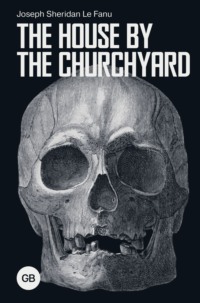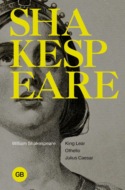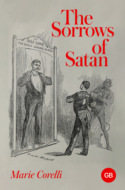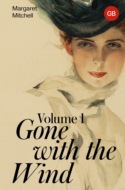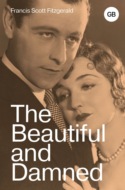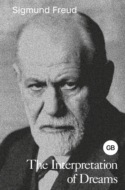Kitabı oku: «The House by the Churchyard / Дом у кладбища», sayfa 3
Chapter IV
The Fair-green Of Palmerstown
There were half-a-dozen carriages, and a score of led horses outside the fair-green, a precious lot of ragamuffins, and a good resort to the public-house opposite; and the gate being open, the artillery band, rousing all the echoes round with harmonious and exhilarating thunder, within – an occasional crack of a 'Brown Bess,' with a puff of white smoke over the hedge, being heard, and the cheers of the spectators, and sometimes a jolly chorus of many-toned laughter, all mixed together, and carried on with a pleasant running hum of voices – Mervyn, the stranger, reckoning on being unobserved in the crowd, and weary of the very solitude he courted, turned to his right, and so found himself upon the renowned fair-green of Palmerstown.
It was really a gay rural sight. The circular target stood, with its bright concentric rings, in conspicuous isolation, about a hundred yards away, against the green slope of the hill. The competitors in their best Sunday suits, some armed with muskets and some with fowling pieces – for they were not particular – and with bunches of ribbons fluttering in their three-cornered hats, and sprigs of gay flowers in their breasts, stood in the foreground, in an irregular cluster, while the spectators, in pleasant disorder, formed two broad, and many-coloured parterres, broken into little groups, and separated by a wide, clear sweep of green sward, running up from the marksmen to the target.
In the luminous atmosphere the men of those days showed bright and gay. Such fine scarlet and gold waistcoats – such sky-blue and silver – such pea-green lutestrings – and pink silk linings – and flashing buckles – and courtly wigs – or becoming powder – went pleasantly with the brilliant costume of the stately dames and smiling lasses. There was a pretty sprinkling of uniforms, too – the whole picture in gentle motion, and the bugles and drums of the Royal Irish Artillery filling the air with inspiring music.
All the neighbours were there – merry little Dr. Toole in his grandest wig and gold-headed cane, with three dogs at his heels, – he seldom appeared without this sort of train – sometimes three – sometimes five – sometimes as many as seven – and his hearty voice was heard bawling at them by name, as he sauntered through the town of a morning, and theirs occasionally in short screeches, responsive to the touch of his cane. Now it was, 'Fairy, you savage, let that pig alone!' a yell and a scuffle – 'Juno, drop it, you slut' – or 'Cæsar, you blackguard, where are you going?'
'Look at Sturk there, with his lordship,' said Toole, to the fair Magnolia, with a wink and a nod, and a sneering grin. 'Good natured dog that – ha! ha! You'll find he'll oust Nutter at last, and get the agency; that's what he's driving at – always undermining somebody.' Doctor Sturk and Lord Castlemallard were talking apart on the high ground, and the artillery surgeon was pointing with his cane at distant objects. 'I'll lay you fifty he's picking holes in Nutter's management this moment.'
I'm afraid there was some truth in the theory, and Toole – though he did not remember to mention it – had an instinctive notion that Sturk had an eye upon the civil practice of the neighbourhood, and was meditating a retirement from the army, and a serious invasion of his domain.
Sturk and Toole, behind backs, did not spare one another. Toole called Sturk a 'horse doctor,' and 'the smuggler' – in reference to some affair about French brandy, never made quite clear to me, but in which, I believe, Sturk was really not to blame; and Sturk called him 'that drunken little apothecary' – for Toole had a boy who compounded, under the rose, his draughts, pills, and powders in the back parlour – and sometimes, 'that smutty little ballad singer,' or 'that whiskeyfied dog-fancier, Toole.' There was no actual quarrel, however; they met freely – told one another the news – their mutual disagreeabilities were administered guardedly – and, on the whole, they hated one another in a neighbourly way.
Fat, short, radiant, General Chattesworth – in full, artillery uniform – was there, smiling, and making little speeches to the ladies, and bowing stiffly from his hips upward – his great cue playing all the time up and down his back, and sometimes so near the ground when he stood erect and threw back his head, that Toole, seeing Juno eyeing the appendage rather viciously, thought it prudent to cut her speculations short with a smart kick.
His sister Rebecca – tall, erect, with grand lace, in a splendid stiff brocade, and with a fine fan – was certainly five-and-fifty, but still wonderfully fresh, and sometimes had quite a pretty little pink colour – perfectly genuine – in her cheeks; command sat in her eye and energy on her lip – but though it was imperious and restless, there was something provokingly likeable and even pleasant in her face. Her niece, Gertrude, the general's daughter, was also tall, graceful – and, I am told, perfectly handsome.
'Be the powers, she's mighty handsome!' observed 'Lieutenant Fireworker' O'Flaherty, who, being a little stupid, did not remember that such a remark was not likely to pleasure the charming Magnolia Macnamara, to whom he had transferred the adoration of a passionate, but somewhat battered heart.
'They must not see with my eyes that think so,' said Mag, with a disdainful toss of her head.
'They say she's not twenty, but I'll wager a pipe of claret she's something to the back of it,' said O'Flaherty, mending his hand.
'Why, bless your innocence, she'll never see five-and-twenty, and a bit to spare,' sneered Miss Mag, who might more truly have told that tale of herself. 'Who's that pretty young man my Lord Castlemallard is introducing to her and old Chattesworth?' The commendation was a shot at poor O'Flaherty.
'Hey – so, my Lord knows him!' says Toole, very much interested. 'Why that's Mr. Mervyn, that's stopping at the Phœnix. A. Mervyn, – I saw it on his dressing case. See how she smiles.'
'Ay, she simpers like a firmity kettle,' said scornful Miss Mag.
'They're very grand to-day, the Chattesworths, with them two livery footmen behind them,' threw in O'Flaherty, accommodating his remarks to the spirit of his lady-love.
'That young buck's a man of consequence,' Toole rattled on; 'Miss does not smile on everybody.'
'Ay, she looks as if butter would not melt in her mouth, but I warrant cheese won't choke her,' Magnolia laughed out with angry eyes.
Magnolia's fat and highly painted parent – poor bragging, good-natured, cunning, foolish Mrs. Macnamara, the widow – joined, with a venemous wheeze in the laugh.
Those who suppose that all this rancour was produced by mere feminine emulations and jealousy do these ladies of the ancient sept Macnamara foul wrong. Mrs. Mack, on the contrary, had a fat and genial soul of her own, and Magnolia was by no means a particularly ungenerous rival in the lists of love. But Aunt Rebecca was hoitytoity upon the Macnamaras, whom she would never consent to more than half-know, seeing them with difficulty, often failing to see them altogether – though Magnolia's stature and activity did not always render that easy. To-day, for instance, when the firing was brisk, and some of the ladies uttered pretty little timid squalls, Miss Magnolia not only stood fire like brick, but with her own fair hands cracked off a firelock, and was more complimented and applauded than all the marksmen beside, although she shot most dangerously wide, and was much nearer hitting old Arthur Slowe than that respectable gentleman, who waved his hat and smirked gallantly, was at all aware. Aunt Rebecca, notwithstanding all this, and although she looked straight at her from a distance of only ten steps, yet she could not see that large and highly-coloured heroine; and Magnolia was so incensed at her serene impertinence that when Gertrude afterwards smiled and courtesied twice, she only held her head the higher and flung a flashing defiance from her fine eyes right at that unoffending virgin.
Everybody knew that Miss Rebecca Chattesworth ruled supreme at Belmont. With a docile old general and a niece so young, she had less resistance to encounter than, perhaps, her ardent soul would have relished. Fortunately for the general it was only now and then that Aunt Becky took a whim to command the Royal Irish Artillery. She had other hobbies just as odd, though not quite so scandalous. It had struck her active mind that such of the ancient women of Chapelizod as were destitute of letters – mendicants and the like – should learn to read. Twice a week her 'old women's school,' under that energetic lady's presidency, brought together its muster-roll of rheumatism, paralysis, dim eyes, bothered ears, and invincible stupidity. Over the fire-place in large black letters, was the legend, 'BETTER LATE THAN NEVER!' and out came the horn-books and spectacles, and to it they went with their A-B ab, etc., and plenty of wheezing and coughing. Aunt Becky kept good fires, and served out a mess of bread and broth, along with some pungent ethics, to each of her hopeful old girls. In winter she further encouraged them with a flannel petticoat apiece, and there was besides a monthly dole. So that although after a year there was, perhaps, on the whole, no progress in learning, the affair wore a tolerably encouraging aspect; for the academy had increased in numbers, and two old fellows, liking the notion of the broth and the 6d. a month – one a barber, Will Potts, ruined by a shake in his right hand, the other a drunken pensioner, Phil Doolan, with a wooden leg – petitioned to be enrolled, and were, accordingly, admitted. Then Aunt Becky visited the gaols, and had a knack of picking up the worst characters there, and had generally two or three discharged felons on her hands. Some people said she was a bit of a Voltarian, but unjustly; for though she now and then came out with a bouncing social paradox, she was a good bitter Church-woman. So she was liberal and troublesome – off-handed and dictatorial – not without good nature, but administering her benevolences somewhat tyrannically, and, for the most part, doing more or less of positive mischief in the process.
And now the general ('old Chattesworth,' as the scornful Magnolia called him) drew near, with his benevolent smirk, and his stiff bows, and all his good-natured formalities – for the general had no notion of ignoring his good friend and officer, Major O'Neill, or his sister or niece – and so he made up to Mrs. Macnamara, who arrested a narrative in which she was demonstrating to O'Flaherty the general's lineal descent from old Chattesworth – an army tailor in Queen Anne's time – and his cousinship to a live butter dealer in Cork – and spicing her little history with not a very nice epigram on his uncle, 'the counsellor,' by Dr. Swift, which she delivered with a vicious chuckle in the 'Fireworker's' ear, who also laughed, though he did not quite see the joke, and said, 'Oh-ho-ho, murdher!'
The good Mrs. Mack received the general haughtily and slightly, and Miss Magnolia with a short courtesy and a little toss of her head, and up went her fan, and she giggled something in Toole's ear, who grinned, and glanced uneasily out of the corner of his shrewd little eye at the unsuspicious general and on to Aunt Rebecca; for it was very important to Dr. Toole to stand well at Belmont. So, seeing that Miss Mag was disposed to be vicious, and not caring to be compromised by her tricks, he whistled and bawled to his dogs, and with a jolly smirk and flourish of his cocked-hat, off he went to seek other adventures.
Thus, was there feud and malice between two houses, and Aunt Rebecca's wrong-headed freak of cutting the Macnamaras (for it was not 'snobbery,' and she would talk for hours on band-days publicly and familiarly with scrubby little Mrs. Toole), involved her innocent relations in scorn and ill-will; for this sort of offence, like Chinese treason, is not visited on the arch offender only, but according to a scale of consanguinity, upon his kith and kin. The criminal is minced – his sons lashed – his nephews reduced to cutlets – his cousins to joints – and so on – none of the family quite escapes; and seeing the bitter reprisals provoked by this kind of uncharity, fiercer and more enduring by much than any begotten of more tangible wrongs, Christian people who pray, 'lead us not into temptation,' and repeat 'blessed are the peace-makers,' will, on the whole, do wisely to forbear practising it.
As handsome, slender Captain Devereux, with his dark face, and great, strange, earnest eyes, and that look of intelligence so racy and peculiar, that gave him a sort of enigmatical interest, stepped into the fair-green, the dark blue glance of poor Nan Glynn, of Palmerstown, from under her red Sunday riding-hood, followed the tall, dashing, graceful apparition with a stolen glance of wild loyalty and admiration. Poor Nan! with thy fun and thy rascalities, thy strong affections and thy fatal gift of beauty, where does thy head rest now?
Handsome Captain Devereux! – Gipsy Devereux, as they called him for his clear dark complexion – was talking a few minutes later to Lilias Walsingham. Oh, pretty Lilias – oh, true lady – I never saw the pleasant crayon sketch that my mother used to speak of, but the tradition of thee has come to me – so bright and tender, with its rose and violet tints, and merry, melancholy dimples, that I see thee now, as then, with the dew of thy youth still on thee, and sigh as I look, as if on a lost, early love of mine.
'I'm out of conceit with myself,' he said; 'I'm so idle and useless; I wish that were all – I wish myself better, but I'm such a weak coxcomb – a father-confessor might keep me nearer to my duty – some one to scold and exhort me. Perhaps if some charitable lady would take me in hand, something might be made of me still.'
There was a vein of seriousness in this reverie which amused the young lady; for she had never heard anything worse of him – very young ladies seldom do hear the worst – than that he had played once or twice rather high.
'shall I ask Gertrude Chattesworth to speak to her Aunt Rebecca?' said Lilias slyly. 'suppose you attend her school in Martin's Row, with “better late than never” over her chimneypiece: there are two pupils of your own sex, you know, and you might sit on the bench with poor Potts and good old Doolan.'
'Thank you. Miss Lilias,' he answered, with a bow and a little laugh, as it seemed just the least bit in the world piqued; 'I know she would do it zealously; but neither so well nor so wisely as others might; I wish I dare askyou to lecture me.'
'I!' said that young lady. 'Oh, yes, I forgot,' she went on merrily,' five years ago, when I was a little girl, you once called me Dr. Walsingham's curate, I was so grave – do you remember?'
She did not know how much obliged Devereux was to her for remembering that poor little joke, and how much the handsome lieutenant would have given, at that instant, to kiss the hand of the grave little girl of five years ago.
'I was a more impudent fellow then,' he said, 'than I am now; won't you forget my old impertinences, and allow me to make atonement, and be your – yourvery humble servant now?'
She laughed. 'Not my servant – but you know I can't help you being my parishioner.'
'And as such surely I may plead an humble right to your counsels and reproof. Yes, youshall lecture me – I'll bear it from none but you, and the more you do it, the happier, at least, you make me,' he said.
'Alas, if my censure is pleasant to you, 'tis a certain sign it can do you no good.'
'Itshall do me good, and be it never so bitter and so true, it will be pleasant to me too,' he answered, with an honest and very peculiar light in his dark, strange eyes; and after a little pause, 'I'll tell you why, just because I had rather you remembered my faults, than that you did not remember me at all.'
'But, 'tis not my business to make people angry.'
'More likely you should make me sad, or perhaps happy, that is to say, better. I think you'd like to see your parish improve.'
'so I would – but by means of my example, not my preaching. No; I leave that to wiser heads – to the rector, for instance' – and she drew closer to the dear old man, with a quick fond glance of such proud affection, for she thought the sun never shone upon his like, as made Devereux sigh a little unconscious sigh. The old man did not hear her – he was too absorbed in his talk – he only felt the pressure of his darling's little hand, and returned it, after his wont, with a gentle squeeze of his cassocked arm, while he continued the learned essay he was addressing to young, queer, erudite, simple Dan Loftus, on the descent of the Decie branch of the Desmonds. There was, by-the-bye, a rumour – I know not how true – that these two sages were concocting between them, beside their folios on the Castle of Chapelizod, an interminable history of Ireland.
Devereux was secretly chafed at the sort of invisible, but insuperable resistance which pretty Lilias Walsingham, as it seemed, unconsciously opposed to his approaches to a nearer and tenderer sort of trifling. 'The little Siren! there are air-drawn circles round her which I cannot pass – and why should I? How is it that she interests me, and yet repels me so easily? And – and when I came here first,' he continued aloud, 'you were, oh dear! how mere a child, hardly eleven years old. How long I've known you, Miss Lilias, and yet how formal you are with me.' There was reproach almost fierce in his eye, though his tones were low and gentle. 'Well!' he said, with an odd changed little laugh, 'youdid commit yourself at first – you spoke against card-playing, and I tell you frankly I mean to play a great deal more, and a great deal higher than I've ever done before, and so adieu.'
He did not choose to see the little motion which indicated that she was going to shake hands with him, and only bowed the lower, and answered her grave smile, which seemed to say, 'Now, you are vexed,' with another little laugh, and turned gaily away, and so was gone.
'she thinks she has wounded me, and she thinks, I suppose, that I can't be happy away from her. I'll let her see I can; I shan't speak to her, no, nor look at her, for a month!'
The Chattesworths by this time, as well as others, were moving away – and that young Mr. Mervyn, more remarked upon than he suspected, walked with them to the gate of the fair-green. As he passed he bowed low to good Parson Walsingham, who returned his salute, not unkindly – that never was – but very gravely, and with his gentle and thoughtful blue eyes followed the party sadly on their way.
'Ay – there he goes – Mervyn! Well! – so – so – pray Heaven, sorrow and a blight follow him not into this place.' The rector murmured to himself, and sighed, still following him with his glance.
Little Lilias, with her hand within his arm, wondered, as she glanced upward into that beloved face, what could have darkened it with a look so sad and anxious; and then her eyes also followed the retreating figure of that pale young man, with a sort of interest not quite unmixed with uneasiness.
Chapter V
How the Royal Irish Artillery Entertained Some Of the Neighbours At Dinner
If I stuck at a fib as little as some historians, I might easily tell you who won the prizes at this shooting on Palmerstown Green. But the truth is, I don't know; my granduncle could have told me, for he had a marvellous memory, but he died, a pleasant old gentleman of four-score and upwards, when I was a small urchin. I remember his lively old face, his powdered bald head and pigtail, his slight erect figure, and how merrily he used to play the fiddle for his juvenile posterity to dance to. But I was not of an age to comprehend the value of this thin, living volume of old lore, or to question the oracle. Well, it can't be helped now, and the papers I've got are silent upon the point. But there were jollifications to no end both in Palmerstown and Chapelizod that night, and declamatory conversations rising up in the street at very late hours, and singing, and 'hurooing' along the moonlit roads.
There was a large and pleasant dinner-party, too, in the mess-room of the Royal Irish Artillery. Lord Castlemallard was there in the place of honour, next to jolly old General Chattesworth, and the worthy rector, Doctor Walsingham, and Father Roach, the dapper, florid little priest of the parish, with his silk waistcoat and well-placed paunch, and his keen relish for funny stories, side-dishes, and convivial glass; and Dan Loftus, that simple, meek, semi-barbarous young scholar, his head in a state of chronic dishevelment, his harmless little round light-blue eyes, pinkish from late night reading, generally betraying the absence of his vagrant thoughts, and I know not what of goodness, as well as queerness, in his homely features.
Good Dr. Walsingham, indeed, in his simple benevolence, had helped the strange, kindly creature through college, and had a high opinion of him, and a great delight in his company. They were both much given to books, and according to their lights zealous archæologists. They had got hold of Chapelizod Castle, a good tough enigma. It was a theme they never tired of. Loftus had already two folios of extracts copied from all the records to which Dr. Walsingham could procure him access. They could not have worked harder, indeed, if they were getting up evidence to prove their joint title to Lord Castlemallard's estates. This pursuit was a bond of close sympathy between the rector and the student, and they spent more time than appeared to his parishioners quite consistent with sanity in the paddock by the river, pacing up and down, and across, poking sticks into the earth and grubbing for old walls underground.
Loftus, moreover, was a good Irish scholar, and from Celtic MSS. had elicited some cross-lights upon his subject – not very bright or steady, I allow – but enough to delight the rector, and inspire him with a tender reverence for the indefatigable and versatile youth, who was devoting to the successful equitation of their hobby so many of his hours, and so much of his languages, labour, and brains.
Lord Castlemallard was accustomed to be listened to, and was not aware how confoundedly dull his talk sometimes was. It was measured, and dreamy, and every way slow. He was entertaining the courteous old general at the head of the table, with an oration in praise of Paul Dangerfield – a wonderful man – immensely wealthy – the cleverest man of his age – he might have been anything he pleased. His lordship really believed his English property would drop to pieces if Dangerfield retired from its management, and he was vastly obliged to him inwardly, for retaining the agency even for a little time longer. He was coming over to visit the Irish estates – perhaps to give Nutter a wrinkle or two. He was a bachelor, and his lordship averred would be a prodigious great match for some of our Irish ladies. Chapelizod would be his headquarters while in Ireland. No, he was not sure – he rather thought he wasnot of the Thorley family; and so on for a mighty long time. But though he tired them prodigiously, he contrived to evoke before their minds' eyes a very gigantic, though somewhat hazy figure, and a good deal stimulated the interest with which a new arrival was commonly looked for in that pleasant suburban village. There is no knowing how long Lord Castlemallard might have prosed upon this theme, had he not been accidentally cut short, and himself laid fast asleep in his chair, without his or anybody else's intending it. For overhearing, during a short pause, in which he sipped some claret, Surgeon Sturk applying some very strong, and indeed, frightful language to a little pamphlet upon magnetism, a subject then making a stir – as from a much earlier date it has periodically done down to the present day – he languidly asked Dr. Walsingham his opinion upon the subject.
Now, Dr. Walsingham was a great reader of out-of-the-way lore, and retained it with a sometimes painful accuracy; and he forthwith began —
'There is, my Lord Castlemallard, a curious old tract of the learned Van Helmont, in which he says, as near as I can remember his words, that magnetism is a magical faculty, which lieth dormant in us by the opiate of primitive sin, and, therefore, stands in need of an excitator, which excitator may be either good or evil; but is more frequently Satan himself, by reason of some previous oppignoration or compact with witches. The power, indeed, is in the witch, and not conferred by him; but this versipellous or Protean impostor – these are his words – will not suffer her to know that it is of her own natural endowment, though for the present charmed into somnolent inactivity by the narcotic of primitive sin.'
I verily believe that a fair description – none of your poetical balderdash, but an honest plodding description of a perfectly comfortable bed, and of the process of going to sleep, would, judiciously administered soon after dinner, overpower the vivacity of any tranquil gentleman who loves a nap after that meal – gently draw the curtains of his senses, and extinguish the bed-room candle of his consciousness. In the doctor's address and quotation there was so much about somnolency and narcotics, and lying dormant, and opiates, that my Lord Castlemallard's senses forsook him, and he lost, as you, my kind reader, must, all the latter portion of the doctor's lullaby.
'I'd give half I'm pothethed of, Thir, and all my prothpecth in life,' lisped vehemently plump little Lieutenant Puddock, in one of those stage frenzies to which he was prone, 'to be the firtht Alecthander on the boardth.'
Between ourselves, Puddock was short and fat, very sentimental, and a little bit of agourmet; his desk stuffed with amorous sonnets and receipts for side-dishes; he, always in love, and often in the kitchen, where, under the rose, he loved to direct the cooking of critical little plats, very good-natured, rather literal, very courteous, a chevallier, indeed, sans reproche. He had a profound faith in his genius for tragedy, but those who liked him best could not help thinking that his plump cheeks, round, little light eyes, his lisp, and a certain lack-a-daisical, though solemn expression of surprise, which Nature, in one of her jocular moods, seemed to have fixed upon his countenance, were against his shining in that walk of the drama. He was blessed, too, with a pleasant belief in his acceptance with the fair sex, but had a real one with his comrades, who knew his absurdities and his virtues, and laughed at and loved him.
'But hang it, there 'th no uthe in doing things by halves. Melpomene's the most jealous of the Muses. I tell you if you stand well in her gratheth, by Jove, Thir, you mutht give yourthelf up to her body and thoul. How the deuthe can a fellow that's out at drill at hicth in the morning, and all day with his head filled with tacticth and gunnery, and – and – '
'And 'farced pigeons' and lovely women,' said Devereux.
'And such dry professional matterth,' continued he, without noticing, perhaps hearing the interpolation, 'How can he pothibly have a chance againth geniuses, no doubt – vathly thuperior by nature' – (Puddock, the rogue, believed no such thing) – 'but who devote themthelveth to the thtudy of the art incethantly, exclusively, and – and – '
'Impossible,' said O'Flaherty. 'There now, was Tommy Shycock, of Ballybaisly, that larned himself to balance a fiddle-stick on his chin; and the young leedies, and especially Miss Kitty Mahony, used to be all around him in the ball-room at Thralee, lookin', wondhrin', and laughin'; and I that had twiste his brains, could not come round it, though I got up every morning for a month at four o'clock, and was obleeged to give over be rason of a soart iv a squint I was gettin' be looking continually at the fiddle-stick. I began with a double bass, the way he did – it's it that was the powerful fateaguin' exercise, I can tell you. Two blessed hours a-day, regular practice, besides an odd half-hour, now and agin, for three mortial years, it took him to larn it, and dhrilled a dimple in his chin you could put a marrow-fat pay in.'
'Practice,' resumed Puddock, I need not spell his lisp, 'study – time to devote – industry in great things as in small – there's the secret.Nature, to be sure – '
'Ay, Nature, to be sure – we must sustain Nature, dear Puddock, so pass the bottle,' said Devereux, who liked his glass.
'Be the powers, Mr. Puddock, if I had half your janius for play-acting,' persisted O'Flaherty, 'nothing i'd keep me from the boards iv Smock-alley play-house – incog., I mean, of course. There's that wonderful little Mr. Garrick – why he's the talk of the three kingdoms as long as I can remember – an' making his thousand pounds a week – coining, be gannies – an' he can't be much taller than you, for he's contimptably small.'
'I'm the taller man of the two,' said little Puddock, haughtily, who had made enquiries, and claimed half an inch over Rocius, honestly, let us hope. 'But this is building castles in the air; joking apart, however, I do confess I should dearly love – just for a maggot – to play two parts – Richard the Third and Tamerlane.'
'Was not that the part you spoke that sympathetic speech out of for me before dinner?'
'No, that was Justice Greedy,' said Devereux.
'Ay, so it was – was it? – that smothered his wife.'
'With a pudding clout,' persisted Devereux.
'No. With a – pooh! – a – you know – and stabbed himself,' continued O'Flaherty.
'With a larding-pin – 'tis written in good Italian.'
'Augh, not at all – it isn't Italian, but English, I'm thinking of – a pilla, Puddock, you know – theblack rascal.'
'Well, English or Italian – tragedy or comedy,' said Devereux, who liked Puddock, and would not annoy him, and saw he was hurt by Othello's borrowing his properties from the kitchen; 'I venture to say you were well entertained: and for my part, Sir, there are some characters' – (in farce Puddock was really highly diverting) – 'in which I prefer Puddock to any player I every saw.'
